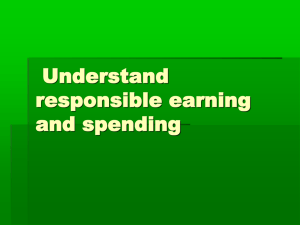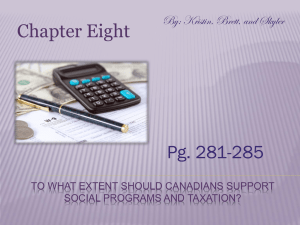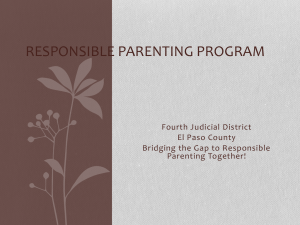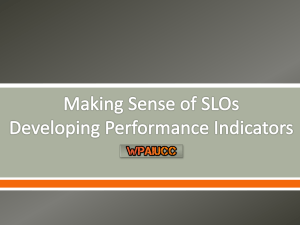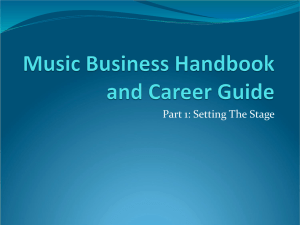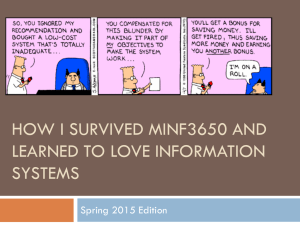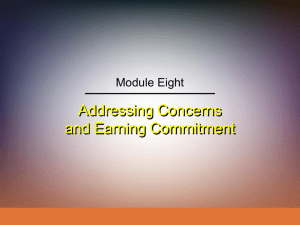EARNING INCOME AND PAYING TAXES TALKING POINTS on
advertisement
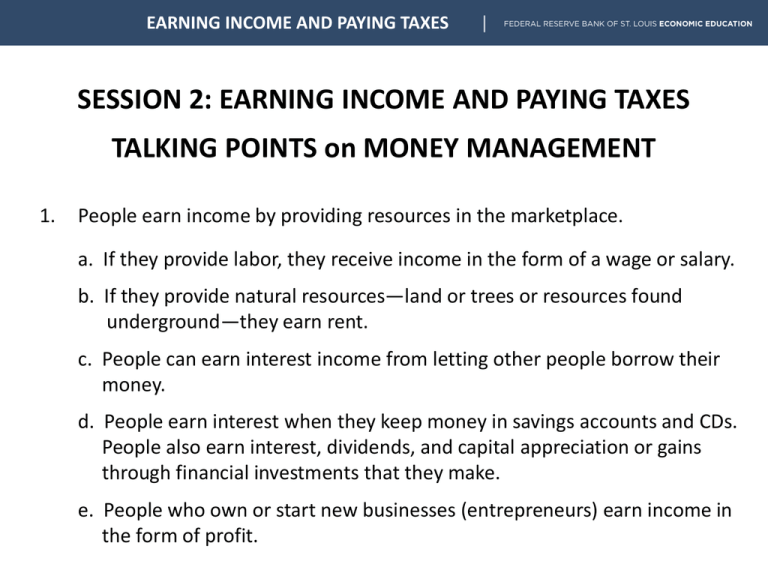
EARNING INCOME AND PAYING TAXES SESSION 2: EARNING INCOME AND PAYING TAXES TALKING POINTS on MONEY MANAGEMENT 1. People earn income by providing resources in the marketplace. a. If they provide labor, they receive income in the form of a wage or salary. b. If they provide natural resources—land or trees or resources found underground—they earn rent. c. People can earn interest income from letting other people borrow their money. d. People earn interest when they keep money in savings accounts and CDs. People also earn interest, dividends, and capital appreciation or gains through financial investments that they make. e. People who own or start new businesses (entrepreneurs) earn income in the form of profit. EARNING INCOME AND PAYING TAXES SESSION 2: EARNING INCOME AND PAYING TAXES TALKING POINTS on MONEY MANAGEMENT 2. Some people receive income support from the government because they have low incomes or because they qualify in some other way for government assistance. For example, people who are retired receive Social Security payments and people with low incomes are eligible for welfare payments. Both Social Security and welfare payments are transfer payments because money is transferred from those currently working to those receiving welfare or Social Security. 3. The choices people make over their lifetimes about education, jobs, and careers affect their incomes and their opportunities. 4. People with more education and more job skills tend to earn higher incomes than those with less education and fewer job skills. EARNING INCOME AND PAYING TAXES SESSION 2: EARNING INCOME AND PAYING TAXES TALKING POINTS on MONEY MANAGEMENT 5. Getting more education and learning new job skills can increase a person’s human capital and productivity. Human capital is the education and skills that a person possesses. 6. Investing in human capital involves obtaining more education and more job skills. Such investments generally pay off with higher levels of income over a lifetime. However, there are opportunity costs associated with obtaining education, training, and skills. 7. A career is based on working at the same type of job/occupation or profession for many years. Different careers require different types of education and training. EARNING INCOME AND PAYING TAXES SESSION 2: EARNING INCOME AND PAYING TAXES TALKING POINTS on MONEY MANAGEMENT 8. People choose jobs or careers for which they are qualified based on the income they expect to earn and the benefits they expect to receive. Benefits include things such as health insurance coverage and retirement plans. People also make choices based on expected job satisfaction, independence, risk, family, or location. EARNING INCOME AND PAYING TAXES SESSION 2: EARNING INCOME AND PAYING TAXES TALKING POINTS on TAXES, GOVERNMENT TRANSFER PROGRAMS, and EMPLOYEE BENEFITS 1. Income earned from working and most other sources of income are taxed. Taxes are required payments to the government. Governments use the revenue from these taxes to operate and provide goods and services. 2. Taxes that most people pay on income include a. federal income taxes and, in some states, a state income tax; b. payroll taxes for the Federal Insurance Contributions Act (FICA), which include both Social Security payments and Medicare payments; and c. taxes on interest and dividends earned as well as taxes on capital gains. EARNING INCOME AND PAYING TAXES SESSION 2: EARNING INCOME AND PAYING TAXES TALKING POINTS on TAXES, GOVERNMENT TRANSFER PROGRAMS, and EMPLOYEE BENEFITS 3. The amount of income tax and FICA paid affects net pay. a. Gross pay in the amount people earn for the work that they do. b. Net pay is the amount people receive after taxes and other deductions are taken out. EARNING INCOME AND PAYING TAXES SESSION 2: EARNING INCOME AND PAYING TAXES TALKING POINTS on TAXES, GOVERNMENT TRANSFER PROGRAMS, and EMPLOYEE BENEFITS 4. How much income tax people pay is tied to the amount they earn and the information they report to their employer on the W-4 form. The form tells employers what factors to consider when determining the amount of tax an employee pays and include whether the employee a. is single or married, b. is the head of a household, or c. has a spouse who is employed. EARNING INCOME AND PAYING TAXES SESSION 2: EARNING INCOME AND PAYING TAXES TALKING POINTS on TAXES, GOVERNMENT TRANSFER PROGRAMS, and EMPLOYEE BENEFITS 5. Another factor that affects an employee’s net pay is deductions for employee benefits. For example, if the company offers health care, typically an employee pays a portion of the monthly cost. This payment is deducted from the employee’s pay. And, if the company provides a 401(k) or Roth 401(k) retirement account, the employee’s contributions are deducted each pay period either before or after taxes are paid, depending on the type of retirement account. 6. Once all taxes and other payments are deducted from a paycheck, the amount remaining is net pay. 7. Once people pay their bills, the amount remaining is their disposable income. EARNING INCOME AND PAYING TAXES SESSION 2: EARNING INCOME AND PAYING TAXES TALKING POINTS 1. Economics is fundamentally about scarcity—not having enough resources to produce all of the goods and services that would satisfy the wants of individuals or society in general. 2. People face scarcity of marketable resources (land, labor, capital, and entrepreneurship). This scarcity limits their ability to earn income. 3. Because of limited income and limits to their time, people must make choices about allocating/rationing what is available.
